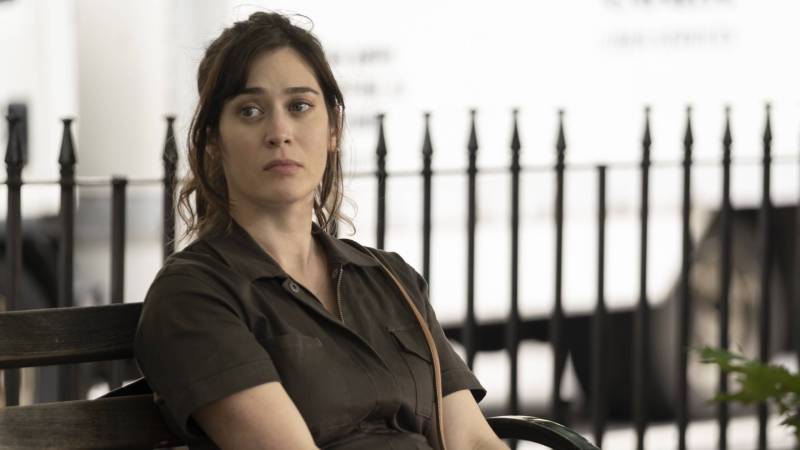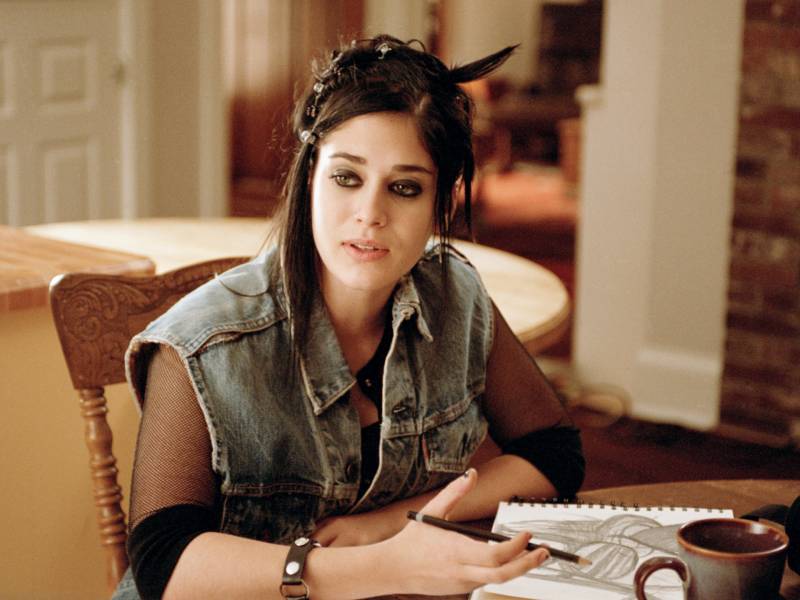I feel like the roles for women, especially in television, they just get more interesting … as I’ve gotten older. But I know that is certainly not something that everybody feels. I know that I’m lucky to feel that way. But I definitely remember when I was younger and auditioning for a lot of this high school stuff or some early-twenties stuff and the male roles were always better. They always got to do the more fun stuff. And you were sort of relegated to a few different archetypes as a girl, especially back then. It has changed a lot, I see. A lot of the teen shows now, there is a shift, but there was the hot popular girl, there was the nerd. There was, like, the alternative best friend, which was very much my lane for a while. And I was very fortunate to be in some projects that kind of skewered the archetypal nature of those things. But for the most part, the things I auditioned for, certainly I remember asking many times when I was younger, like, “Can I audition for the guy part? Is there any way? There’s no reason why this character has to be a guy. It can be a girl.” And I certainly had nowhere near enough clout in the business for anybody to do anything other than laugh at that request.
On losing her mother when she was 13 and turning to acting in her grief
I had no idea how to process my mother’s death. It took me many, many years, but I knew that it gave me a darkness that in my mind was a requirement for being an actor, or the kind of actor I wanted to be. I needed to have this inner pain in order to do it. I remember going to an acting class and auditing it when I was 16 years old, and it was in Hollywood. It was a pretty prestigious acting class and it was full of 100 people in it and it went really late, till 1:00 a.m. And I stayed there and I watched it the whole time. And then I met with the teacher afterwards to see if I could join the class. And she looked at me and asked me how old I was, and I said I was 16. And she said, “You haven’t had any life experience. You can’t be in this class,” and booted me out. And that moment, it’s so crystallized in my brain because I remember feeling like, ‘Oh, no, this is the community that’s supposed to see these things in me — that I do have the depth that is required to be in this class — but you just see some dumb little teenager who hasn’t been through anything.’ When the reality was I had been through what is still the most monumental tragedy of my life.
On her first role in the series Freaks and Geeks
Little did I know that “critically acclaimed and short-lived” would describe the vast majority of my future projects. The experience itself was very overwhelming … just stepping into this completely different universe that I had no idea about. I grew up in L.A., but I had never been on a movie set before. I didn’t know how any of it worked. I didn’t know about marks on the ground and coverage and close ups and how long everything was going to take and hair and makeup and how many outfits I’d have to try on for this one line that I was going to say.
I remember … just looking in the mirror for hours, just reciting this one line over and over and over and over again and being terrified and just in love with the idea of this moving village with these hundreds of people all working towards this goal together, but also feeling, again, completely overwhelmed, very shy, not bonding in any way with any of my castmates or anybody. I look back at that experience and it was just honestly pure luck to end up on a show that ended up being so loved and so respected for so many years, because I really did audition for all kinds of nonsense, and just that was the first place that picked me. But it wasn’t a fun experience for me. It was mostly just scary.
On her break-out role in 2004’s Mean Girls as “alternative” girl Janis Ian


9(MDAxOTAwOTE4MDEyMTkxMDAzNjczZDljZA004))

